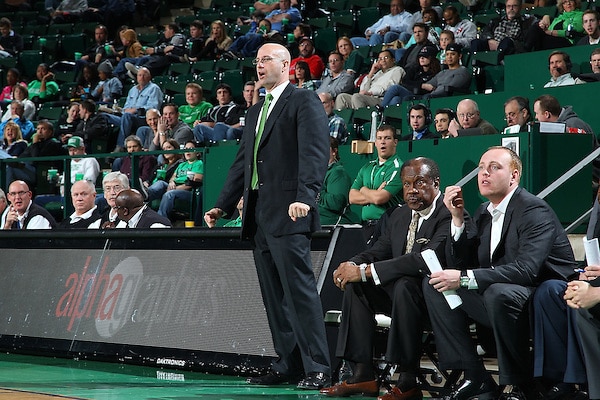
How to Develop a Coaching Philosophy for Basketball: What You Need to Know as a Coach
A well-crafted coaching philosophy is the cornerstone of effective basketball coaching. It provides direction, shapes your interactions with players, and influences your decision-making both on and off the court.
Developing a solid coaching philosophy helps create a cohesive and successful team environment. Here’s a comprehensive guide on how to develop a coaching philosophy for basketball:

1. Reflect on Your Coaching Values and Beliefs
Before formulating your philosophy, take time to reflect on your core values and beliefs about coaching:
Core Values:
Identify what values are important to you as a coach. These might include integrity, teamwork, hard work, and respect. Your values should guide how you approach coaching and interact with your players. For instance, if you value teamwork, you will likely emphasize collaborative drills and create an environment where players support one another.
Coaching Beliefs:
Consider your beliefs about player development, game strategy, and the role of discipline. Decide what principles will underpin your coaching approach. For example, do you believe in the importance of character development alongside athletic skills? This could lead you to incorporate lessons on sportsmanship and resilience into your coaching.

2. Define Your Coaching Objectives
Clearly outline the objectives you aim to achieve as a coach:
Team Objectives:
Determine what you want your team to accomplish. This might include winning championships, developing individual skills, fostering teamwork, or promoting a positive team culture. Write down these objectives and ensure they are communicated to your players so that everyone is on the same page.
Individual Objectives:
Set goals for individual player development. Focus on helping players improve their skills, understand the game better, and grow as athletes and individuals. These objectives can be tailored to each player, considering their unique strengths and weaknesses, thereby providing a personalized coaching experience.
3. Develop Your Coaching Style
Your coaching style should align with your values and objectives:
Approach:
Decide on your coaching approach, whether it’s a democratic style that involves player input, an autocratic style with clear directives, or a combination of both. A democratic style might work well with older players who can handle responsibility, while a more directive approach may be better for younger, less experienced teams.
Communication:
Consider how you will communicate with your players. Will you be more direct and assertive, or will you focus on encouragement and support? Your communication style should be consistent with your overall philosophy. Regularly check in with players to see how they respond to your style, and be willing to adapt as necessary.

4. Create a Positive Team Culture
A positive team culture is crucial for success:
Team Values:
Establish values that promote teamwork, respect, and a strong work ethic. Ensure these values are consistently reinforced in practice and games. For example, establish a no-tolerance policy for disrespectful behavior to cultivate a culture of respect among players.
Team Building:
Incorporate activities and strategies that strengthen team cohesion and foster a supportive environment. Consider scheduling team-building exercises or social events that allow players to bond outside of practice. This could be anything from team dinners to volunteer opportunities, which can strengthen relationships and promote a sense of belonging.
5. Emphasize Player Development
Focus on the growth and development of your players:
Skill Development:
Prioritize skill development in your coaching philosophy. Design practices and drills that enhance individual skills and contribute to overall team performance. Break down complex skills into manageable drills to facilitate improvement, allowing players to track their progress over time.
Personal Growth:
Support players’ personal growth by emphasizing life skills such as discipline, perseverance, and leadership. Create an environment where players feel valued and motivated to reach their full potential. Consider incorporating discussions on goal-setting and accountability, which can help players learn how to manage their aspirations both in and out of the sport.

6. Incorporate Game Strategy
Your philosophy should include your approach to game strategy:
Offensive Strategy:
Define your approach to offense. Will your team focus on a fast-paced style, utilizing quick transitions and open shots, or will you prioritize a methodical approach with structured plays? Be prepared to adapt your offensive strategies based on the strengths and weaknesses of your players.
Defensive Strategy:
Similarly, determine your defensive strategy. Do you prefer man-to-man defense, zone defense, or a hybrid approach? Your defensive philosophy should reflect your team’s capabilities and your overall coaching philosophy. Consider how you can teach players to understand the “why” behind your defensive strategies, helping them buy into the system.
7. Foster Open Communication
Open communication is essential to a successful coaching philosophy:
Encourage Dialogue:
Create an environment where players feel comfortable expressing their thoughts and concerns. Regularly check in with players individually and as a group, fostering a culture of openness. This can help you address issues before they escalate and allows players to feel valued and heard.
Active Listening:
Practice active listening when engaging with players. Show that you value their input by maintaining eye contact and nodding during conversations. Reflect back what you’ve heard to ensure understanding, and be willing to incorporate their feedback into your coaching strategy.

8. Continuously Evaluate and Adapt
Your coaching philosophy should not be static; it should evolve based on experiences and outcomes:
Self-Reflection:
Regularly reflect on your coaching experiences and assess what is working and what is not. Are your players developing as you hoped? Is your team culture thriving? Take time to evaluate your practices, games, and interactions with players.
Seek Feedback:
Encourage feedback from players, assistant coaches, and even parents. This input can provide valuable insights that help you adjust your approach. Be open to constructive criticism and willing to make changes that enhance your effectiveness as a coach.
9. Model Your Philosophy
As a coach, you must embody the philosophy you create:
Lead by Example:
Your actions should reflect your coaching philosophy. If you emphasize respect and hard work, be sure to model those behaviors consistently. Show your commitment to player development by being available for extra help and demonstrating a passion for the game.
Build Relationships:
Invest time in building relationships with your players. Understand their backgrounds, interests, and motivations. This relationship-building will not only enhance team dynamics but also solidify your role as a mentor.
How to Develop a Coaching Philosophy for Basketball Conclusion:
Developing a coaching philosophy is an ongoing process that requires reflection, adaptation, and commitment. By clearly defining your values, objectives, and strategies, you can create a solid foundation for your coaching career.
A well-articulated philosophy will not only guide your interactions with players but also contribute to the overall success of your team. Embrace this journey, and let your coaching philosophy evolve as you gain experience and insight into the beautiful game of basketball.



